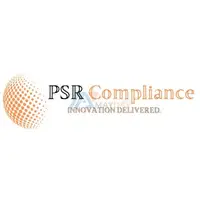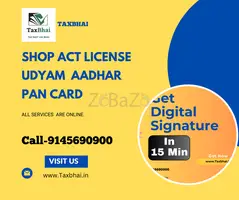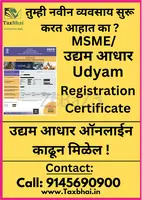Description
Trademark registration is a crucial step for businesses and individuals seeking to protect their brand identity and intellectual property rights. If you're looking to register a trademark in Noida, this guide will walk you through the essential documents required, the registration process, and the significance of PSR (Public Search of Registered Trademarks) compliance.
Documents Required for Trademark Registration in Noida:
Trademark Application Form: Form TM-A is the primary document to initiate the registration process. It includes information about the applicant, the trademark, and the goods/services it will be used for.
Representation of Trademark: A clear and precise representation of the trademark is necessary. This can be in the form of a logo, wordmark, or a combination thereof.
Applicant's Identity Proof: A copy of the applicant's Aadhar card, passport, or any other government-issued ID is required for identity verification.
Business Entity Proof: For businesses, documents like a certificate of incorporation, partnership deed, or LLP agreement must be submitted as proof of existence.
Address Proof: Documents such as electricity bills, property tax receipts, or rental agreements are needed to verify the address of the applicant.
Form of Authorization: If an agent or attorney is filing the application on behalf of the applicant, a Power of Attorney form is required.
Trademark Registration Process in Noida:
Preliminary Search: Before applying, it's advisable to conduct a preliminary search to check if the proposed trademark is already registered or if any similar marks exist.
Filing the Application: Submit the completed Form TM-A along with the required documents to the Trademark Office. This can be done online through the official IP India website.
Examination: The trademark application undergoes examination by the Trademark Registrar to ensure it complies with the relevant rules and regulations.
Publication: If the application passes examination, it is published in the Trademark Journal. During this period, third parties have the opportunity to oppose the registration if they believe it infringes upon their rights.
PSR Compliance: PSR compliance involves conducting a Public Search of Registered Trademarks to ensure that the proposed trademark doesn't conflict with existing registered trademarks. This step helps in minimizing the possibility of objections during the registration process.
Registration: If no opposition is raised within the specified period, and there are no objections from the Registrar, the trademark is registered. A certificate of registration is issued, granting the applicant exclusive rights to use the trademark.
Conclusion:
Trademark registration in Noida involves a series of systematic steps, from document preparation to PSR compliance, all aimed at safeguarding your brand's unique identity. By following the outlined process and ensuring PSR compliance, you can establish legal protection for your trademark, enhancing your business's credibility and distinguishing it in the marketplace. It's recommended to consult with legal professionals or experts in intellectual property to navigate this process smoothly and effectively.





















